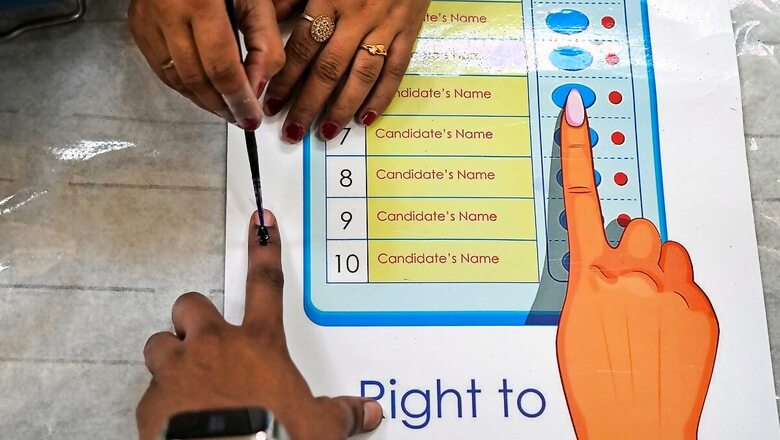
views
An implementation group will be formed to take forward the recommendations of the Kovind panel on ‘One Nation One Poll’, the report for which was accepted by the Union Cabinet on Wednesday (September 18).
Union minister Ashwini Vaishnaw said this group will execute the recommendations in the report, which said simultaneous polls will be implemented in two stages: first for the Lok Sabha and assembly elections, and the second for local body elections within 100 days of general elections.
Here is how the government plans to implement ‘One Nation One Poll’ (ONOP):
- Simultaneous elections will be implemented in two phases
- In the first phase, Lok Sabha and assembly elections will be conducted simultaneously
- In second phase, local body elections to panchayats and municipal bodies will be conducted within 100 days of the general elections
- There will be a common electoral roll for all elections. Voter ID cards will be prepared by the Election Commission of India (ECI) in consultation with state election authorities
- The Centre will initiate detailed discussions throughout the country
- An implementation group will be formed to execute the recommendations of the Kovind panel.
Vaishnaw said a large number of parties have supported ONOP, and the Centre will seek to create consensus over next few months. He said the recommendations of the Kovind panel will be discussed across India on various fora.
Here are the recommendations of the Kovind panel report:
- When Parliament meets, an “appointed date” should be set to notify the move. All assemblies formed by state elections after the appointed date shall only be for the period up to the subsequent general elections in 2029
- In effect, state governments formed between 2024 and 2028 will have a shorter term till the 2029 Lok Sabha elections, subsequent to which there will be automatic simultaneous Lok Sabha and assembly polls
- For example, a state which holds an election in 2025 will have a government with a four-year-term while the one that conducts an election in 2027 will have a government only for two years till 2029
- The report has also recommended that in the event of a hung House, no-confidence motion or any such event, fresh elections may be held to form the new House – be it in the Lok Sabha or state assemblies.
- The term of the new government, hence formed, will also be only for the unexpired term of the preceding full term of the Lok Sabha and the expiration of this period shall operate as dissolution of the House.
Vaishnaw further said the panel found widespread support for simultaneous polls, following which the Cabinet gave a unanimous nod to the proposal. He added that more than 80 per cent respondents supported it, and opposition parties may face pressure from within to give support.
Here is what lies ahead:
- The panel recommended as many as 18 constitutional amendments, most of which will not need ratification by state assemblies. But, these will require certain Constitution amendment bills that will need to be passed by Parliament
- Some proposed changes regarding the single electoral roll and voter ID card will need ratification by at least half of the states
- Separately, the Law Commission is also likely to come up soon with its own report on simultaneous polls, of which Prime Minister Narendra Modi has been a strong votary
- Sources said the Law Commission is likely to recommend holding simultaneous polls for all three tiers of the government — the Lok Sabha, state assemblies and local bodies like municipalities and panchayats — starting with 2029 and a provision for unity government in cases like hung house.
The report of the high-level committee was placed before the Cabinet on Wednesday. The panel headed by former president Ram Nath Kovind had submitted the report in March ahead of the announcement of the Lok Sabha elections. Placing the report before the Cabinet was a part of the law ministry’s 100-day agenda.
At present, the ECI is responsible for the Lok Sabha and assembly polls, while the local body polls for municipalities and panchayats are managed by state election commissions.
(With PTI inputs)



















Comments
0 comment